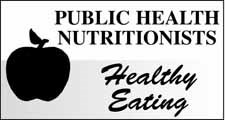Garlic is well known for its ability to enhance the flavour of food. For thousands of years, it has also been used worldwide for its perceived health benefits. More recent claims for garlic are that it reduces the risk of cancer and coronary heart disease and that it might control high blood pressure. But what is the research telling us?
Scientists have been studying garlic for many years now and have learned much about its effects. Unfortunately, most of the earlier studies done on garlic and its ability to affect cholesterol and blood pressure were not based on a standard garlic product. The composition of garlic depends on the source, age, storage conditions, processing and whether it is used as whole cloves, crushed, juiced, baked, eaten raw or used as a powder or oil. However the studies simply refer to the effects of "garlic". As a result it is hard to validate, compare or duplicate findings. The studies also tended to be based on a small number of people or they were done in test tubes or with animals.
A 2009 summary of the evidence from randomized control trials found that the consumption of garlic, in any form, did not reduce blood cholesterol levels in either healthy people or those with high cholesterol. This doesn't necessarily mean that garlic may not be effective in reducing the risk of coronary heart disease. Other factors may play a role in garlic's effectiveness. A diet that is high in saturated fat may suppress garlic's ability to lower cholesterol levels and blood pressure.
The bottom line - we need more studies before a recommendation can be made about the health benefits of garlic. The health benefits are continuing to be understood as more studies take place. In the meantime - enjoy garlic. It adds flavour to foods and makes eating more enjoyable.
When buying garlic, select heads that are dry with plenty of paper covering. Green shoots indicate that the garlic is too old or wasn't dried properly. The taste of garlic varies depending on whether it is raw or cooked. Generally, the finer garlic is chopped, the stronger the taste. Crushed has the strongest taste of all. Whole baked cloves are the mildest. They have a rather sweet taste. Garlic powder has a different taste than fresh garlic. One-eighth teaspoon can be substituted for one clove of fresh garlic.
As a note of caution, garlic can interfere with blood-thinning medications such as warfarin, or Coumadin. If an individual is on these anti-clotting medications, large amounts of garlic daily are not advised. Contact your doctor, pharmacist or dietitian for more information.
Written by the Public Health Nutritionists of Saskatchewan and supported by Public Health, Sunrise Health Region.
If you have any comments or questions please contact: Heather Torrie, Public Health Nutritionist, Sunrise Health Region, 150 Independent Street, Yorkton, Sask. S3N 0S7 Or phone: 786-0600.




